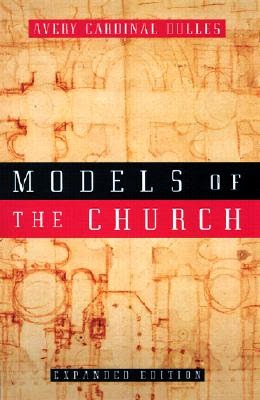"Cheap grace is the mortal enemy of the Church," Bonhoeffer opens. "Our struggle today is for costly grace."
In reading that famous opening line from Dietrich Bonhoeffer's now-classic Discipleship, I knew I was in for a book that would not let me remain unchanged. It is the nature of the hearing of the Gospel, that once the essential content of the kerygma has been heard, there comes about an eschatological event, where one can heed the call to "drop our nets", or leave as the young rich man does - sad, though still in full possession of his riches. The call of Jesus - announced through the proclamation that Jesus has conquered death for the forgiveness of sins, and is Lord of all, inaugurating his kingdom through the ministry of the Church - precipitates a moment of decision. Precisely because the call requires an answer, it cannot leave the person unchanged.
This is standard Christian theology, clear in practice from even a fairly superficial reading of the gospel accounts and the Acts of the Apostles. The Gospel polarises people because it confronts with a decision. What I have learnt from Bonhoeffer is not that discipleship demands change, but that it is precisely grace that demands change. We Catholics have a wealthy tradition of avoiding polarisations of things which must, even paradoxically, unite - faith and reason, faith and works, free will and predestination, Christ being human and divine.
Yet I wonder whether our modern Catholic has not fallen into precisely the trap of seeing grace as sharply distinct from obedience to the call of Christ. Perhaps this is because we have taken grace to mean cheap grace, which really is antithetical to discipleship. Bonhoeffer writes lucidly about what distinguishes cheap and costly grace:
"Cheap grace is that grace we bestow upon ourselves...It means forgiveness of sins as a general truth; it means God’s love as merely a Christian idea of God. Those who affirm it have already had their sins forgiven. The church that indulges in this doctrine of grace hereby confers such grace upon itself. [...] Cheap grace is the preaching of forgiveness without requiring repentance, baptism without discipline, communion without confession, absolution without personal confession. Cheap grace is grace without discipleship, grace without the cross, grace without Jesus Christ, living and incarnate."
On the other hand:
"Costly grace is the hidden treasure in the field, for the sake of which people go and sell with joy everything they have. It is the costly pearl, for whose price the merchant sells all that he has; it is Christ’s sovereignty, for the sake of which you tear out an eye if it causes you to stumble. It is the call of Jesus Christ which causes a disciple to leave his nets and follow him. [...]
It is costly, because it calls to discipleship; it is grace, because it calls us to follow Jesus Christ. It is costly, because it cost people their lives; it is grace, because it gives them their lives. It is costly, because it condemns sins; it is grace, because it justifies the sinner. Above all, grace is costly, because it was costly to God, because it costs God the life of God’s son – “you were bought with a price” – and because the life of God’s son was not too costly for God to give for our lives. God did, indeed, give him up for us. Costly grace is the incarnation of God."
We Catholics know this, so much do we understand (it is said) that grace is costly, that we fall off the other side and require more than just belief, adding works to "faith alone". That is the claim made against us by some Protestant groups. "True," they might say, "we recognize that this is not official Church teaching, that Catholics do believe in grace alone" - but, they hasten to add, "the average Catholic believes in works-righteousness." I disagree. I see the average Catholic - the "practicing" one, that is - as having accepted grace, but not costly grace, only the cheap variety. The average Catholic who goes to Mass seems to have "forgiveness of sins as a general truth [...] God’s love as merely a Christian idea of God." This is not to say that they are all like that - far from it!
We Catholics know this, so much do we understand (it is said) that grace is costly, that we fall off the other side and require more than just belief, adding works to "faith alone". That is the claim made against us by some Protestant groups. "True," they might say, "we recognize that this is not official Church teaching, that Catholics do believe in grace alone" - but, they hasten to add, "the average Catholic believes in works-righteousness." I disagree. I see the average Catholic - the "practicing" one, that is - as having accepted grace, but not costly grace, only the cheap variety. The average Catholic who goes to Mass seems to have "forgiveness of sins as a general truth [...] God’s love as merely a Christian idea of God." This is not to say that they are all like that - far from it!
This proclamation of cheap grace seems like the only thing that might attract the masses, the only way to effectively evangelise. Precisely because it denies the centrality of the call to discipleship, because it ignores the cost of responding to the call of Jesus Christ that is intrinsically linked to the Gospel, it is not the true Gospel. Cheap grace replaces Jesus with an idol, a god made in our image, who justifies all our wrongdoings because this idol is really our own self-forgiveness. It underlies the Catholic denial of the sacrament of reconciliation with the line that "God forgives me anyway", it is that absolution without personal confession. The Catholic who is scared of a fellow sinner in the confessional, and so chooses to go "to God himself" has denied the complete otherness of the true God, the holy God, and has replaced God with the grace that they bestow upon themselves.
These "good news" of cheap grace is not only the mortal enemy, as Bonhoeffer says, of the true Church, that community of true Christians, it also sickens that sociological group we also call "the Church." What Bonhoeffer writes of the Lutherans in his own time is true of Catholics now:
"But do we also know that this cheap grace has been utterly unmerciful against us? Is the price that we are paying today with the collapse of the organised churches anything else but an inevitable consequence of grace acquiered too cheaply? We have away preaching and sacraments cheaply; we performed baptisms and confirmations, we absolved an entire people, unquestioned and unconditionally; out of human love we handed over what was holy to the scornful and unbelievers. We poured out rivers of grace without end, but the call to rigorously follow Christ was seldom heard. What happened to the insights of the ancient church, which in the baptismal teaching watched so carefully over the boundaries between the church and the world, over costly grace?"
I had the opportunity a few months ago, and also just last week, to participate in that ancient liturgy, which still conserves that line reflecting the Church as distinct from the worldly. Before the Liturgy of the Eucharist, the call is heard "The doors, the doors!" Those who were not baptised into the People of God must have left, and the doors shut, for they could not even participate from afar in that holy treasure the Church has, her only treasure: Christ incarnate. Those who wished to participate in that greatest of gifts must first renounce Satan and receive Baptism, be born anew into the People of God. This was how the early Christians responded to their Master's command that they not give what is holy to those who are not fitting to receive it. (Mt. 7:6) But we do not now consider that grace to be something for which we must renounce that which is antithetical to God. We have cheap sacraments - all welcome! We have cheap grace, and it rots us from within.
Worst of all is that, if the average Catholic has only cheap grace, that most addictive of substances, we have lost sight of Jesus. Set aside that, from a sociological perspective, the good news of cheap grace gains few converts because it does not allow for the working of the Holy Spirit which necessarily changes a person, and so the official numbers dwindle. Cheap grace separates us from Jesus, not only because it is not the grace bestowed by Jesus, but because when that cheap grace justifies our sin, we are hardened into disobedience. That cheap grace which does not challenge our actions merely blesses them, and so we are estranged from the call of Christ to follow him.
If we are to become disciples of the Risen Lord, we are to become disciples of costly grace. For it is only when we find the pearl of great price that we are willing to sell everything we have to obtain it.









